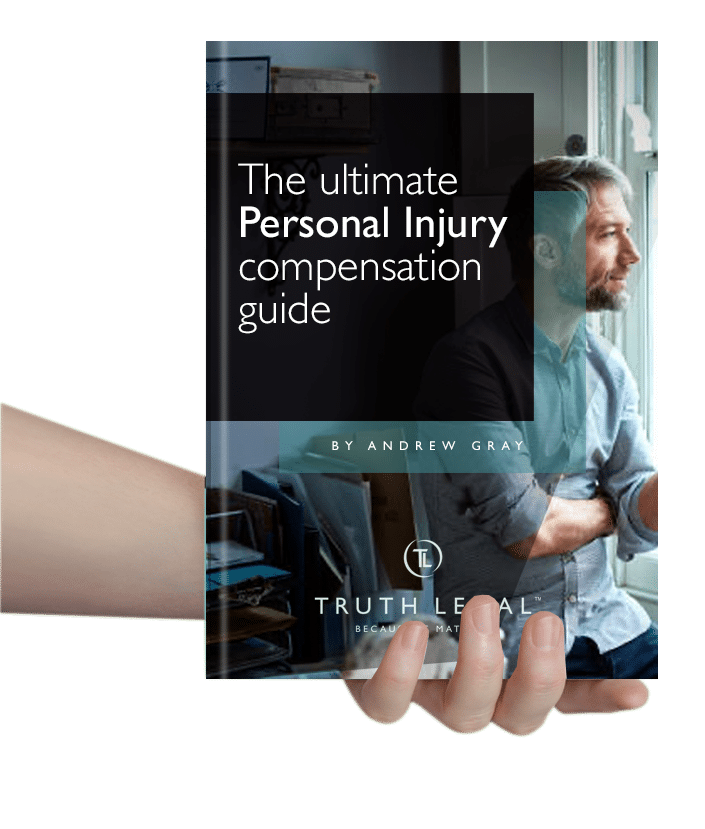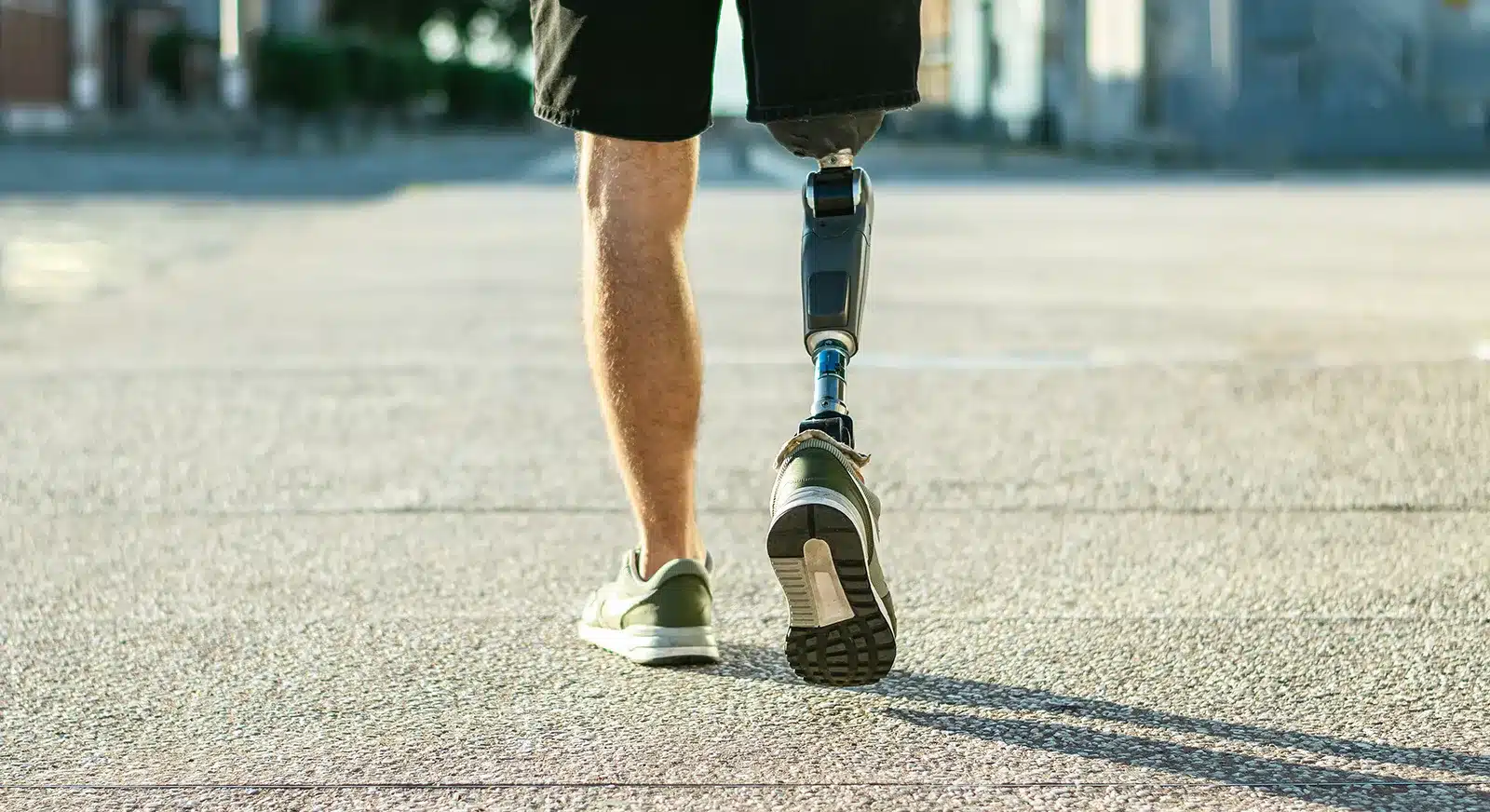The consequences of a brain injury affect you and your loved ones. If you have suffered a traumatic brain injury, you deserve compensation and access to the best possible care.
Our expert Personal Injury lawyers are here for you. We will support your brain injury claim from beginning to end, focusing on you so that you can focus on recovery.
We have helped clients with their brain injury claim following accidents such as:
- Road traffic accidents
- Accidents at work
- Assaults at work
- Slips, trips and falls
- Clinical/medical negligence
- Criminal injuries
Brain Injury Claims FAQs
Common types of brain injuries include:
- Second-Impact Syndrome (SIS) – This refers to a rapid swelling of the brain. It is caused by a concussion occurring when the victim is still recovering from an earlier concussion. In some cases, this could be weeks after the original concussion was sustained. It can often prove fatal.
- Diffuse Axonal Injury (DAI) – This is a term given to a kind of trauma over a widespread area of the brain. Unfortunately, it is one of the most common types of traumatic brain injury. It can result in unconsciousness, a persistent vegetative state, and death. If consciousness is regained, there is expected to be a high degree of physical and mental impairment.
- Hypoxic-Anoxic Injuries (HAI) – This covers injuries caused by a partial or complete lack of oxygen to the brain. The brain needs a constant supply of oxygen to function, if the supply is stopped, or insufficient, then brain function will be immediately impaired. After around four minutes without oxygen, lasting damage to brain tissue can occur, leading to the risk of serious cognitive impairment. There are many possible causes, including choking, chemical poisoning, or complications at birth.
- Cerebral contusion – This term refers to a bruising of the brain tissue. A cerebral contusion occurs when the small blood vessels in an area of the brain are damaged, causing blood to leak from them. Cerebral contusions can cause a decline in long-term mental function.
- Coup-contrecoup injury – This term refers to a pattern of cerebral contusions (see above) which can occur at the impact site of a trauma and also upon the opposite side of brain. It happens when strong forces are involved: the initial impact causes one contusion, then the ‘recoil’ effect leads to the brain hitting the inside of the skull on the opposite side, resulting in another area of the brain being damaged.
- Concussion – Concussions are temporary brain injuries caused by a trauma. Their symptoms normally occur straightaway but can appear at a later time, even up to a few days after the trauma. At their most minor, concussion symptoms can include: headaches, dizziness, and nausea. More severe symptoms, however, include: memory loss, persistent vomiting, behavioural changes, and sensory impairment. It is important to monitor concussion symptoms carefully in case they indicate a more serious brain injury. Whilst recovering, it is also very important to avoid any further concussions – (see Second-Impact Syndrome above)
The idea behind compensation is to return you, as far as possible, to your pre-accident situation. The unfortunate truth is that no amount of money will undo the accident.
With serious brain injuries, recovering to a normal way of life is not always possible. Where compensation can assist is in helping to cope with the long-term effects – removing financial worry when you have a new way of life to adjust to.
But claiming compensation isn’t just about countering the negative effects of your accident. It is about making a stand for what’s right, claiming what you are entitled to, and trying to prevent similar negligence affecting someone else in the future. Your claim could drive these changes – perhaps forcing new safety practices to be adopted, for example.
If they have suffered serious brain damage, a loved one may not have the mental capacity to make a claim for themselves. In these situations, you can act on their behalf as a ‘Litigation Friend’.
Please make us aware of this when you discuss the case in more detail. We can also explain to you what acting as a Litigation Friend would entail.
Many factors are taken into account when valuing a personal injury claim. With brain injuries, compensation awards are greatly affected by the extent of any long-term effects or the impairment caused by the injury.
The following figures are from taken from the 13th Edition of the Judicial College Guidelines. Judges use these guidelines when considering what amount of compensation would be reasonable in a case. Even if a judge never becomes involved in the case, solicitors also use the guidelines to assist with valuing personal injuries.
| Injury | Description and Factors Considered | Compensation |
|---|---|---|
| Very Severe Brain Damage | Cases where there has been a significant effect on the senses and severe physical limitation. Little, if any, evidence of meaningful response to stimuli. The need for full-time nursing care.
The court will consider the degree of understanding the victim has, their life expectancy, and the extent of physical limitation. |
£235,790 to £337,700 |
| Moderately Severe Brain Damage | Cases of very severe disability with the need for constant care and substantial dependence upon others. There may be physical disabilities, such as limb paralysis, and a possible, marked impairment of intellect and personality. Life expectancy may have been greatly reduced.
The court will consider the degree of understanding victim has, their life expectancy, the extent of physical limitation, their degree of dependence upon others, their ability to communicate, any behavioural abnormality, and the extent, or the risk, of epilepsy. |
£183,150 to £235,790 |
| Moderate Brain Damage (upper tier) | Cases of moderate to severe intellectual deficit and/or personality change. An effect on sight, speech, and senses. A significant risk of epilepsy and no prospect of employment. | £125,510 to £183,150 |
| Moderate Brain Damage (middle tier) | Cases of moderate to modest intellectual deficit. The ability to work greatly reduced or removed completely and some risk of epilepsy. | £75,900 to £125,510 |
| Moderate Brain Damage (lower tier) | Cases where concentration and memory are affected. A reduction in the ability to work. Very limited dependency on others and a small risk of epilepsy. | £36,000 to £75,900 |
| Less Severe Brain Damage | Cases where a good recovery has been achieved with a return to normal social and work life. Includes the potential for some ongoing impairment such as poor concentration, memory or mood problems. For cases at the high end of this bracket there is a potential small risk of epilepsy.
The court will consider the severity of the initial injury, any permanent disability (or the chance of it), any personality change and its extent, and any depression. |
£12,820 to £35,970 |
| Minor brain or head injury | Cases of minimal brain damage (if any).
The court will consider the severity of the initial injury, the recovery time, any continuing symptoms, and whether the victim has suffered from any headaches. |
£1,840 to £10,670 |
The injuries you have suffered may be the main part of your claim. Essentially, this is a claim for the pain and suffering that the injury has caused you, as well as recognition of the things it has stopped you from doing. Brain injuries can often result in permanent symptoms or impairment. Injury compensation awards can be high to reflect this.
Brain injuries, and severe ones in particular, will affect many parts of your life. This frequently leads to many other losses and expenses being incurred. If losses have resulted directly from the accident and your injuries, you can include them in your claim.
The most common losses include:
- Travel expenses
- Medical expenses and treatment costs
- Loss of earnings
- Care and assistance
Anticipated future losses can also be included in claims. For brain injuries which have caused severe mental or physical disability, these could reflect the costs of life-long care or the possibility that you may never be able to work again.
For more information on what you can claim, download our free Personal Injury Compensation Guide. You can also see examples of a Schedule of Loss in our free legal library.
Traumatic brain injuries refer to injuries where brain damage is caused by an external force. This could be through physical contact, blast waves, or forces causing a rapid ‘acceleration-deceleration’ motion to the head (such as whiplash). The term also includes the secondary effects caused by such trauma – symptoms such as swelling in the brain or oxygen deprivation to areas of brain tissue.
All traumatic brain injuries have the potential to cause catastrophic injuries.
Traumatic brain injuries are often categorised into open and closed injuries:
- Closed – This covers injuries where the skull remains intact but trauma is still caused to the brain. This could be from an impact to the head, which does not perforate the skull, or from sharp jolting movements which displace the brain. These forces can strain and tear nerve tissues, or damage blood vessels leading to internal bleeding in the brain.
- Open or penetrating – This covers injuries where the skull is broken through. Damage to the brain can result from the initial trauma or from the brain being left exposed. High speed collisions and impacts from projectiles or from sharp objects can all cause open head injuries.
Success in a personal injury claim is all down to proof.
You must prove that the other party was negligent and that this caused your injury. You must also prove the extent of your injuries, the losses they have caused, and the amounts of those losses.
As you are making the claim, it is for you to prove these things in the first place. It is not for the other side to disprove them.
Each case has its own challenges. Having the right solicitors to act for you and to guide you through can make all the difference in the service you receive and the skill with which your case is handled.
The duration of a claim depends upon many different circumstances. Some of these factors are:
- Your recovery time. It is always advisable to ensure you are as fully recovered as possible before settling an injury claim. This allows the total extent of your claim to be documented and included.
- Areas of dispute. If the people you are claiming against do not accept some, or all, of your claim, the claim could be lengthened by gathering evidence and proving it to them.
- Court proceedings. Not all cases require the involvement of a court. However, if areas of dispute persist or it becomes necessary to ‘protect’ your right to claim, court proceedings may be unavoidable. This can mean a claim takes longer to resolve, although even if court proceedings are started it does not mean the case will be heard in a courtroom. If it is, a judge will determine any issues in the case, there will not be a jury.
Generally, you must begin your claim within 3 years of the date of the accident. If you do not, you could be prevented from ever doing so.
A number of other rules can change the time limits which apply, however. If you are bringing a claim for someone who does not have the mental capacity to do it themselves, either because of their brain injury or otherwise, the time limit will not ‘run’ whilst they are in this condition. This could easily mean that no time limit applies in their case.
If you are thinking of bringing a brain injury claim, or you are worried it might be too late, contact us as soon as possible so that we can advise you.
If the accident in question was not your fault, Truth Legal can usually help you on the basis of a ‘No Win, No Fee’ agreement. In the vast majority of situations, this means that you do not have to pay our fees if we are unsuccessful in recovering compensation for you.
Upon a successful outcome, some of our fees are paid by a portion of your compensation award, but no deduction is made from any future losses element of your claim, which can often be the largest element of your claim. This is the normal way in which No Win No Fee agreements operate. It is also usual for much of our fees to be paid by the other party or their insurers.
How a claim is funded is always explained in more detail before a claim begins. Please feel free to contact us if you would like to know more.
Why Make Your Brain Injury Claim with Truth Legal?
At Truth Legal, we understand how traumatic it can be to experience a brain injury, and how complex it can feel to bring a brain injury compensation claim. Our team of specialist lawyers are fully committed to securing you the compensation you deserve.
Client care is our top priority, so our clients receive the direct phone number of their solicitor for use in emergencies. That means we will be on hand to personally handle your case, providing you with clear, honest advice, and are here for you whenever you need us.
Where possible, we try to take brain injury claims on a No Win No Fee basis, because we believe there should be no financial risk to you when seeking support. This includes a free consultation to evaluate your claim and provide objective feedback.
If you would like to discuss the options available to you or your loved one, we offer a free, no obligation consultation to evaluate your case and provide you objective feedback.
If you’d like to know more about claiming with us, read our blog:
Start Your Claim
Tell us about your case to get your claim started.
"*" indicates required fields
Meet some of the PI Team

The Ultimate Personal Injury Compensation Guide
This guide is your way into a greater understanding of Personal Injury compensation.
Recent success stories
Pedestrian Seriously Injured in a Road Traffic Accident Receives Over £390,000 in Compensation
£390,000+ Compensation
£20,000 Compensation for Assault While Employed at one of UK’s Largest Car Park Companies
£20,000 Compensation
£100,000 compensation awarded to roofer after fall from height on construction site
£100,000 Compensation
Truth Legal recovers £50,000 for father of two after accident on family day out
£50,000 Compensation
Personal Injury News
My Road Traffic Accident: How It Has Influenced Me As A Personal Injury Lawyer
Warehouse Accident Risks – What Might Give Rise to a Personal Injury Claim?
When Is My Car Accident Personal Injury Claim No Longer Suitable for the Official Injury Claim (OIC) Portal?
What compensation can be claimed after a loved one’s fatal accident?
5 Things You Need to Know About Making a Personal Injury Claim for a Child
Assaulted at Work by a Resident – 3 Things You Should Do Now
























